Manufacture Vs Job work-whether difference is relevant in GST regime?
Warning: Undefined variable $show_all_cats in /home/taxguru/public_html/wp-content/themes/tgv5/single.php on line 61
Goods and Services Tax |
Warning: Undefined variable $show_all_types in /home/taxguru/public_html/wp-content/themes/tgv5/single.php on line 69
Articles, Featured
Warning: Undefined variable $all_cats in /home/taxguru/public_html/wp-content/themes/tgv5/single.php on line 78
GST rate The taxable event under the Central Excise law is ‘manufacture’ of excisable goods. Whether particular process amounts to ‘manufacture’ or not is chronic dispute. Even though the Central Excise Law is enacted 70 years back, still various disputes on this chronic dispute is pending before Tribunals, High Courts & Supreme Court. Hon’ble Supreme Court in the case of UOI Vs Delhi Cloth Mills Ltd AIR 1963 SC 791 defined exactly what amounts to ‘manufacture’ under the Excise Law.
Job work is merely a process or processes undertaken by the job worker on the goods belonged to the principal. Job work may amounts to manufacture or may not amount to manufacture. Job worker may use some portion of his material also or he may not use his material at all. The law on these issues have already been settled.
GST is amalgamation & consolidation of all existing indirect taxes and one of the aims of GST is to increase the tax base & reduce the disputes & litigation in indirect taxes.
Job work has been defined under section 2(68) of the CGST Act, 2017 to mean ‘any treatment or process undertaken by a person on goods belonging to another registered person’.
As per Section 2(72) of the CGST Act, 2017 “manufacture” means processing of raw material or inputs in any manner that results in emergence of a new product having a distinct name, character and use and the term “manufacturer” shall be construed accordingly;
As per Serial No. 26(i)(f) of the Notification No. 11/2017-Central Tax (Rate) dated 28.06.2017 as amended vide Notification No. 31/2017 dated 13-10-2017 “services of processing of all food and food products falling under Chapters 1 to 22 in the First Schedule to the Customs Tariff Act, 1975 (51of 1975)” liable for tax @2.5%. Correspondingly State Tax is liable for SGST @2.5%. From this it is clear that job work services of food products are liable for GST @5%
The opening lines of the above entry say ‘Services by way of job work in relation to…….” The chapter heading 9988 says (Manufacturing services on physical inputs (goods) owned by others.
Many job workers of food products located in east coast of India charged GST@5% on their processing services. Now the State GST officers issued the show cause notices left & right demanding the GST@18% on their processing services as their process does not amounts to manufacture. The claim of State GST officers is that if job work results into manufacture of new product then applicable rate is 5%. If job work does not result into manufacture of new product, such job work is liable for GST@18%. So essentially the department gone back to Excise regime & again wants to test perennial question as to whether particular process amounts to manufacture or not?
These show cause notices were issued with the huge demand of differential GST, interest and penalty equivalent to tax to many job workers. These proceedings will have serious & disastrous impact on small job workers and Small & medium enterprises as they are not affordable pay to these differential amounts now. Since the proceedings have been initiated under Section 74 of the GST Act, 2017, the principals (service receivers) are also not eligible for credit in terms of Section 17(5)(i) of the GST Act, 2017 even if they reimburse differential tax to Job worker. So principals will not reimburse this tax as it is purely a cost.
As usual, the State GST Department officers will not give the reasons for their interpretations & conclusions in the demand notices. In the present case GST department not gone through the ‘scheme of classification of services-Annexure which is given in the end of rate Notification’ From the explanatory Notes to Chapter 9988 it is clear that this chapter covers both complete manufacturing services on inputs belonged to Principals or also portion/part of manufacturing process as service on inputs belonged to Principals. Both the services are covered in the same description & same Chapter.
If the State GST department gone through the above classification of services-Annexure, this dispute would not have raised at all. Like this there are many issues, the state GST officials issuing the show cause notices for simple issues/reasons. It is admitted fact that ‘state GST machinery is not as strong as centre’s when it comes to understanding of law, enforcement & administration of law’. It appears that State GST officers are not well read the GST law.
Once the show cause notices are issued with heavy demands along with the penalties, these issues will be settled at Tribunals, High Courts & Supreme Court level only. Tax payers already lost the confidence on process of adjudication by the quasi judicial authority as it is merely formality, revenue bias, no application of legislative provisions and there is no independency in deciding the cases. These Adjudication orders are passed contrary to elementary jurisprudence which is not only mockery, but also detrimental to rules of justice. General observation is adjudication orders from State Officers fatally suffers from lack of analysis/discussion regarding contentions and arguments of tax payers and makes a mockery of quasi-judicial process inasmuch as it is not merely non-speaking but absurd in parts.
Lot of Public money is involved in litigations of Revenue Department. Litigation has become costly affair in the GST regime as 10% to 30% of tax is required to be deposited as upfront pre-deposits before filing the appeal and these amounts are locked for decades.
It is high time that GST officers require training on GST provisions, demands, adjudication and drafting of adjudication orders. Incompetent demand proceedings, departmental adjudication ill serves the interests of the tax payers & also State. Apart from accentuating the appellate docket load, such casual orders will contribute to faith deficit in the process of departmental education and imperils the due process of law.
In this regard author is making humble request to GST Council, Board of Central Indirect Taxes and to the Secretary (Revenue), Ministry of Finance, Department of Revenue, for appropriate consideration of above issues which are in larger public interest. In specific also, in order to give relief to MSME sector, the Board is required to issue a favorable clarification on the subject issue.
For any further queries/comments please write to anil@hiregange.com






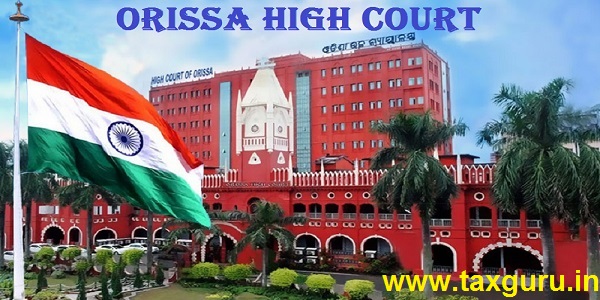

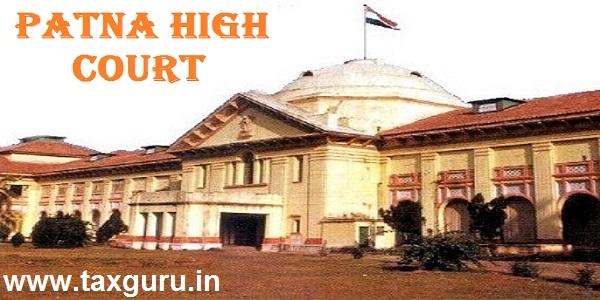






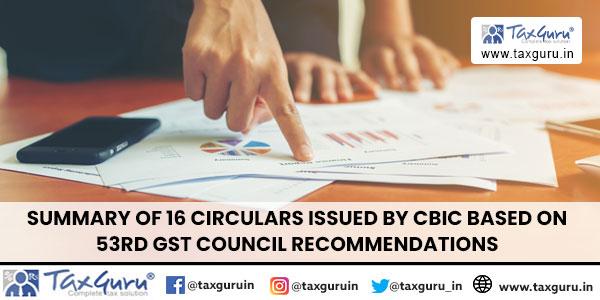
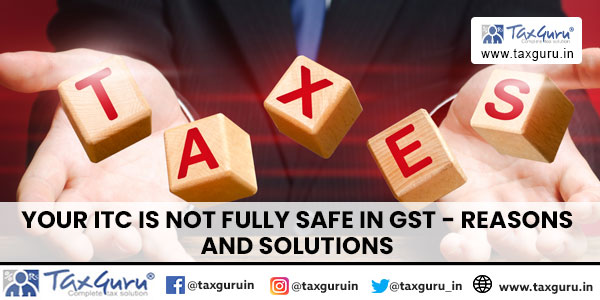
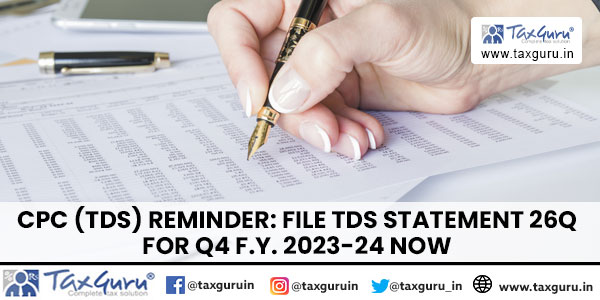
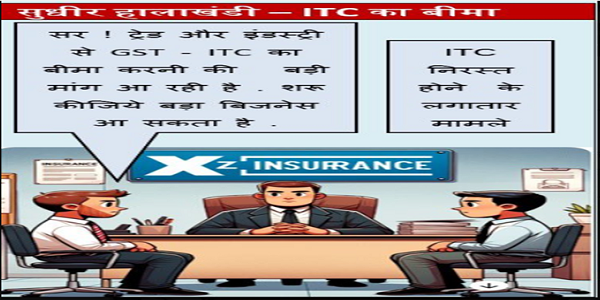

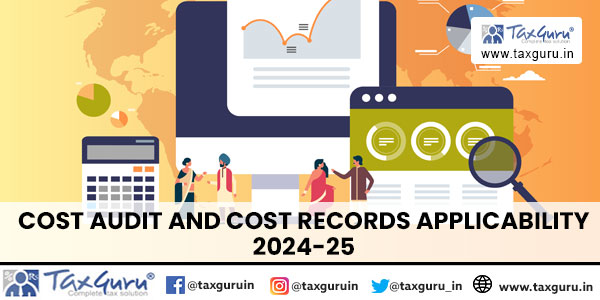









It is worth reading article
Author has closely seen the department dealing which is apparent from his article.
Yes more than 60% of the department people don’t understand provisions of GST and they are still living in excise regime. Only the officers of AC/DC and above level are knowledgeable.
Reading GST provisions it is a fact that it will bring back the Inspector raj and when the inspectors wont understand the law the implementation is going to be a havoc on the assesses.
OFFHAND (pending a read/study in details):
For GST levy , what is relevant is the ‘évent’ ‘of ‘supply’ of goods ; which is not but actually and factually posterior to ‘manufacture’.(of goods).
Under the erstwhile law, what was leviable on ‘manufacture’ was ‘éxcise duty’ ; and on sale, ‘sales tax’. It is with a view to avoid cascading effect, GST came into being; subsuming both excise duty and sales tax.
A confusion has been considered possible , perhaps, because now, GST levy is attracted be it either a supply of
goods or of services (as distinct- NOT ON BOTH or a mixture of the two) ?!
Such a line of thinking , in own perspective, better one, should serve the purpose of a ‘BACKDROP’ for finding an answer to the point of Poser !
In short, in any view, by any reasoning or logic, the “difference” is prima facie most certainly relevant.
It is in this context, the ‘principles of interpretation’ as enunciated by courts for serving as ‘AIDS’ might have to be studied and summoned for help !
OVER to …….
Courtesy